|
To coincide with the publication of my new book, King Richard, on Nixon and Watergate, I have compiled a list of the top five books for understanding why America's iconic political scandal happened. These are the books that were most helpful to me in my own research, as I tried to figure out the motivations of the principal characters. 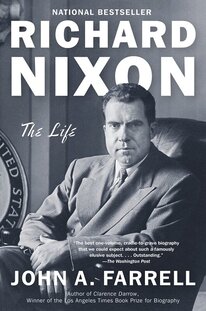 1. Richard Nixon: The Life by John Farrell. In order to understand Watergate, you first have to understand Richard Nixon. This is the best, single-volume biography that chronicles Nixon's life in a balanced and fair way that gives us great insight into his character and motivations. Published in 2017, it is a model of its kind. Farrell attempts neither to vilify Nixon nor to defend him, but to explain him, in the context of his times. He gives us the extraordinary story of the self-made man from a struggling Quaker family in California who rose to the top through his own efforts - and then threw it all away through his own fatal flaws. Many of Nixon's gambles succeeded. Watergate was the one that failed. 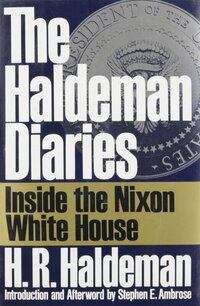 2. The Haldeman Diaries by H.R. Haldeman. There was no one closer to Richard Nixon as Watergate unfolded than his chief of staff, Bob Haldeman. Every evening, Haldeman dictated an audio diary that is an essential source for understanding the Nixon presidency and the chain of events that led to its unraveling. While Haldeman admired Nixon, he was also well aware of his faults. He records the triumphs, failures, and personal quirks of his boss on an almost minute-to-minute basis. I think that Haldeman has it right when he concludes that Nixon did not know about Watergate in advance, in the sense that he did not order the break-in, but certainly caused it, in the sense that he created the culture that spawned all the abuses. Ultimately, these abuses led to Haldeman's own resignation and eighteen months in prison for Watergate-related offenses. 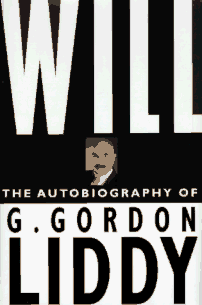 3. Will by G. Gordon Liddy. Gordon Liddy was an extraordinary character, a swaggering former FBI agent who was on a self-imposed mission to save America from "communism," even if it meant breaking the law. Even Nixon thought that Liddy was "a little nuts" but needed him as part of his campaign to get even with the Democrats and opponents of the war in Vietnam. In heading up the Watergate break-in, Liddy turned out to be a bungling amateur whose incompetence led directly to the failure of the operation. Nevertheless, he wrote one of the best books about Watergate--one that is both entertaining and revealing in its outrageous frankness and colorful descriptions of his fellow conspirators. A self-described admirer of Adolf Hitler, Liddy is a forerunner to the "patriots" who stormed Congress in January 2021 to "defend democracy." Liddy's 1996 autobiography is key to understanding the mentality that led to Watergate and continues to pose a threat to American democracy. 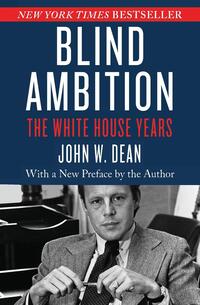 4. Blind Ambition by John Dean Dean's book is essential to understanding the psychodrama that led to the unraveling of the Watergate conspiracy. An ambitious lawyer picked to serve as White House counsel at the age of thirty-one, Dean feared that he was being set up to take the blame for Watergate. He was the first Nixon aide to appreciate the legal perils of the cover-up and the risks he was being asked to run. In order to save himself, he had to exit the conspiracy, betraying the president who was relying on him to throw a blanket over the scandal. In this 1976 memoir, Dean provides a candid account of his state of mind as he led a double life - Nixon loyalist by day, prosecution informant by night. Juggling the conflicting pressures, he began drinking ever more heavily, leading to a crisis in his marriage that provides a dramatic personal counterpoint to the crisis in the White House. 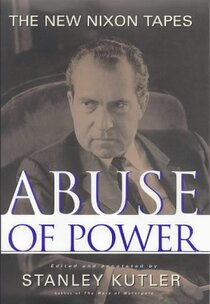 5. Abuse of Power by Stanley Kutler. Had Nixon not taped himself in secret, it is doubtful that he would have been forced to resign as president of the United States. While some of the most incriminating tapes were released as a result of a Supreme Court order, the remainder became the subject of a long legal tussle that continued for several decades. Nobody did more to secure the full release of the tapes than the historian Stanley Kutler who published highlights in his 1997 book, Abuse of Power. The tapes provide a unique insight into the functioning of the modern-day presidency, and Nixon's own personality, that is unlikely ever to be matched. Thanks to Kutler's efforts, we are able to hear Nixon in his own words and feel his pain and bewilderment as his world disintegrates around him.
0 Comments
Your comment will be posted after it is approved.
Leave a Reply. |
About MichaelMichael Dobbs is the author of seven books, including the best-selling One Minute to Midnight. His latest book, King Richard, is about Nixon and Watergate. Archives
June 2021
|